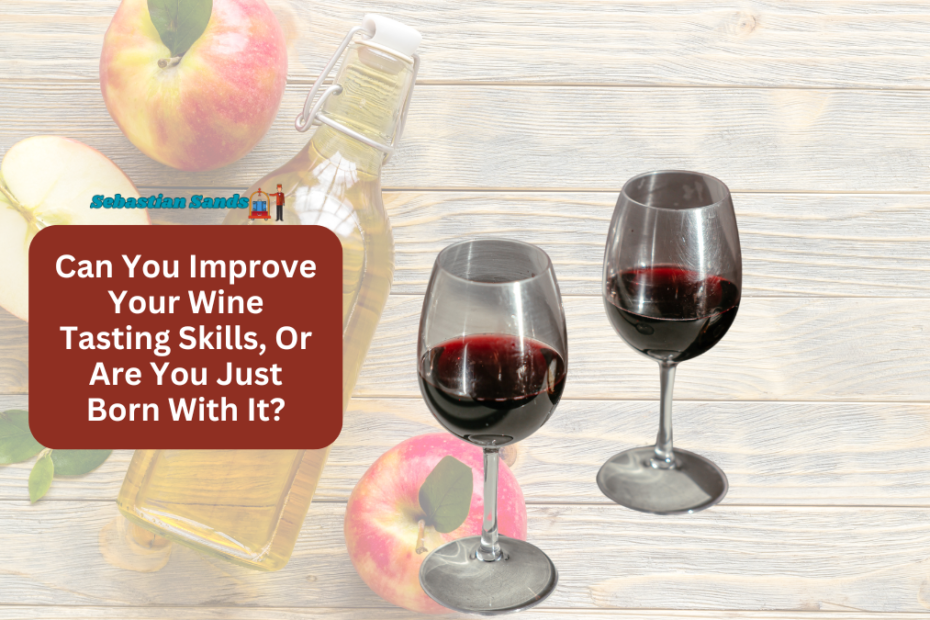We all know expert wine tasting requires a refined palate, but are these talents innate, or can anyone train their taste buds to detect the subtle nuances in a glass of wine? While becoming a Master Sommelier might feel out of reach, honing your wine-tasting skills is something anyone can work towards.
If common wine terms like “velvety mouthfeel” and “firm tannins” sound foreign to you, don’t worry. Developing a refined palate is a learned skill involving education, practice, and the ability to analyze what you perceive.
Here’s how you can enhance your wine-tasting abilities and become more in tune with the flavors and aromas in every sip.
Understanding The Science Of Taste
Wine tasting isn’t just about what your tongue detects. According to Dr. Soma Mandal, a board-certified internist, the olfactory system is crucial in perceiving flavors. When we drink wine, volatile compounds are released, and these travel to the olfactory receptors in the nasal cavity, allowing us to distinguish complex flavor profiles.
The tongue detects five basic tastes: sweet, sour, salty, bitter, and umami. However, the sense of smell provides the deeper, more intricate layers of a wine’s flavor.
Read More : 5 Must-Visit Northeast Cideries For Your Next Fall Foliage Road Trip
Common Wine Flavors You Should Know
To improve your wine-tasting skills, it helps to recognize common wine flavors. Here’s a breakdown:
- Fruity: Red wines often have notes of cherry, raspberry, blackberry, or plum, while white wines feature green apple, pear, or citrus.
- Floral: In reds, you might detect rose or violet, while whites can evoke jasmine or honeysuckle.
- Earthy: Reds may bring mushroom or leather to mind, and whites can have flavors like wet stone or chalk.
- Spicy: Reds often have peppery, cinnamon, or clove notes, and whites might hint at ginger or allspice.
- Herbal: Reds might feature tobacco or cedar, while whites lean toward grassy or fennel-like flavors.
Key Indicators Of Wine Quality And Age
While personal taste is subjective, certain attributes can help determine a wine’s quality.
- Length/Finish: The longer a wine’s flavor lingers on your palate, the higher the quality.
- Balance: A well-balanced wine has its flavors (fruit, tannins, alcohol, acidity) in harmony, with no one element overpowering the others.
- Capacity to Age: Over time, a balanced young wine can integrate into a more cohesive and complex whole, creating a richer experience.
Factors That Can Inhibit Your Wine-Tasting Abilities
Several factors can affect your ability to taste and enjoy wine:
- Age: As we age, taste buds can become less sensitive.
- Smell: Conditions like nasal congestion or sinus infections can impair your ability to detect aromatic compounds.
- Health Conditions: Smoking, respiratory infections, poor oral hygiene, and even certain medical conditions like diabetes can diminish your sense of taste and smell.
Tips To Improve Your Wine-Tasting Skills
Improving your wine-tasting abilities takes practice and intentional effort. Here are some tips to help you become more proficient:
1. Learn Common Wine Terminology
Understanding basic wine vocabulary will help you describe and identify flavors. Terms like “minerality” (crushed rocks or saline), “earthy” (mushroom or dirt), and “tannic” (astringent or bitter) are just a few examples that will enhance your wine-tasting experience.
2. Explore Wine Regions and Grape Varieties
Each wine-growing region has unique environmental factors—such as climate, soil, and altitude—that impact the wine’s characteristics. Understanding these influences will help you recognize the distinct flavors each region imparts to its wines.
Read More : 17 Types Of Grapes You Should Know: From Grocery Store Staples To Farmers Market Delights
3. Start Smelling and Tasting with Intention
Engage all your senses by smelling different objects and noting their aromas. Similarly, focus on the texture (mouthfeel) of wines, whether soft, crisp, or syrupy.
4. Practice Good Health Habits
Maintaining a healthy diet, staying hydrated, and avoiding smoking will support your ability to taste and smell effectively.
5. Taste, Share, and Discuss
Tasting wine with others and discussing your impressions will help you refine your palate. Share your thoughts with fellow wine enthusiasts to gain new perspectives.
Conclusion
Improving your wine-tasting skills isn’t a one-time event—it’s an ongoing process. You’ll deepen your understanding of their flavors and nuances by consistently tasting and analyzing wines. So sip slowly, engage with the wine before you, and discover new tastes, textures, and aromas.
